FORT BENNING, Ga. (Army News Service, June 29, 2009) -- For some kids, a chance to hang out with and pick the brain of a U.S. Olympian or Soldier would be the highlight of the summer. Here, 35 youngsters earned the opportunity to do both at the same time.
The U.S. Army Marksmanship Unit's International Rifle team conducted a five-day shooting camp, June 22-26, for some of the top up-and-comers in the sport from all over the country. During the event, Army shooters helped prepare the kids to take the next step in their young shooting careers.
"It's more of an advanced camp," said Sgt. George Norton, who was the camp's director. "There are a lot of camps out there for the basic level and teaching the fundamentals, but this camp is bringing them to that next step. A lot of shooters are looking for that next thing to learn, but there aren't many camps out there that will do that for them. We wanted to have a camp that will help out those kids that wanted something a little extra."
The camp was born from the numerous requests for AMU Soldiers to teach shooters from all over the country every summer, said Maj. Michael Anti, a former U.S. Olympian. With the pace of the shooting schedule and other responsibilities, the team wouldn't have time to properly train if it was running all over the country.
"We decided to do one clinic a year and open it up to the nation's best junior shooters so we can get a big group at one time," said Anti.
Entry is limited to 35 kids, who all had to earn their way into the camp, Norton said. They had to meet certain criteria to attend the camp, including gaining a qualifying rank through USA Shooting.
"We actually had to turn away a bunch of kids," Norton remarked. "We didn't want to, but we wanted to have that higher ratio."
The ratio of one coach to four shooters is one of the reasons the camp is so successful and sought after by shooters and their parents. The time devoted to each shooter by a coach is something the AMU strives for and feels most proud of.
"The low coach-to-shooter ratio is great," said Kelly Edwards, who brought his 12-year-old daughter Kaitlynn to the camp from Victoria, Texas. "They really get to ask some good questions, more advanced stuff. Besides all of the shooting questions, the coaches were telling them how to pack for a match and how to handle a finals match, things like that."
The camp starts out with a diagnostic shooting event on Monday morning, giving the coaches a starting point from where to work. From there, classroom work begins in the afternoon, preparing the shooters for the next morning's range session. They are taught the intricacies of the prone, standing, and kneeling positions, along with an array of marksmanship techniques. It culminates Friday with a finals event, copied straight from the way an Olympic-level event would run.
"The match at the end of the week is my favorite part of camp," said Kelsey Hansen, 16, from Minot, N.D., who was making her second visit to the camp. "It allows me to see my improvements."
The kids bombard the coaches with all kinds of questions, such as "What is an accurate rifle'" "What do I watch for in the wind'" or "What do you say when you get nervous to calm down'"
"The overall goal is for them to realize that they can shoot better," Norton said. "Some of them come in thinking along the lines that this is as good as I am going to get-'I can't fix this or I can't fix that'-and we want to get rid of the cant's. We want them to get to the 'I will fix this and I will fix that.' They're so young and it takes time. I mean, I've been shooting for 11 years. (Sgt. 1st Class Jason Parker) has been shooting for 20 years. A lot of the guys on the team have been in the sport for so long and we're still getting better."
The dedication, professionalism and expertise of the AMU Soldiers instill positive impressions of the Army that may help prospective candidates in their decision about their future. A junior who attended three previous camps is on his way to West Point this fall and will be a member of their shooting team.
"It's good to let them know that we are Soldiers first, but this is our job," said Norton. "You can come in and be a mechanic, an infantryman, or whatever you want, and you can still do this."
The week is not all work. The team takes the shooters bowling, to a miniature golf course, and the brand new Infantry Museum and IMAX Theater in the evenings after training. The coaches also have a friendly competition amongst each other to see who can improve their shooters the best.
"If they'll have us, we'll be back," Edwards said. "It doesn't get said enough how great these Soldiers are. I want to thank them for their great service to a great country."
The AMU trains thousands of Soldiers each year in marksmanship techniques through train-the-trainer clinics, and passing this knowledge on to possible future Soldiers, or Olympic shooters, is what it's all about.
"I just like being around the kids," said Parker, a three-time Olympian. "Some of the things we take for granted the kids don't have the knowledge to know about it yet. I really enjoy passing on my knowledge to these up-and-coming shooters."
(Michael Molinaro is the PAO for the for the U.S. Army Marksmanship Unit)
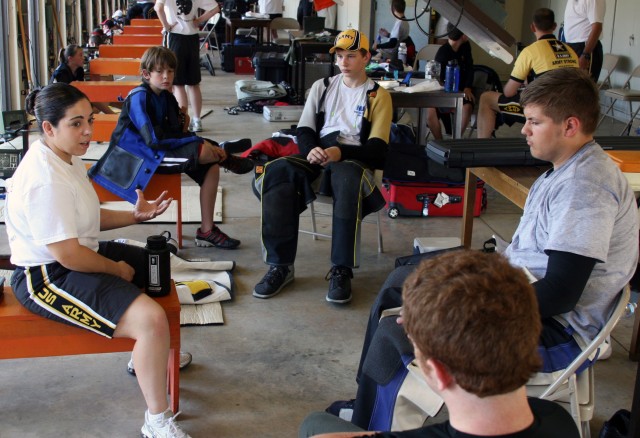
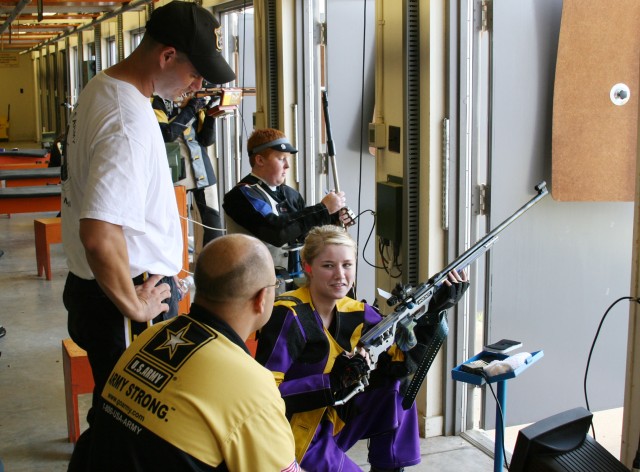
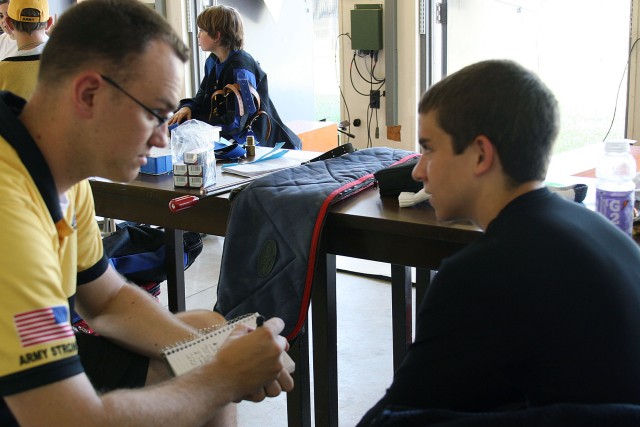
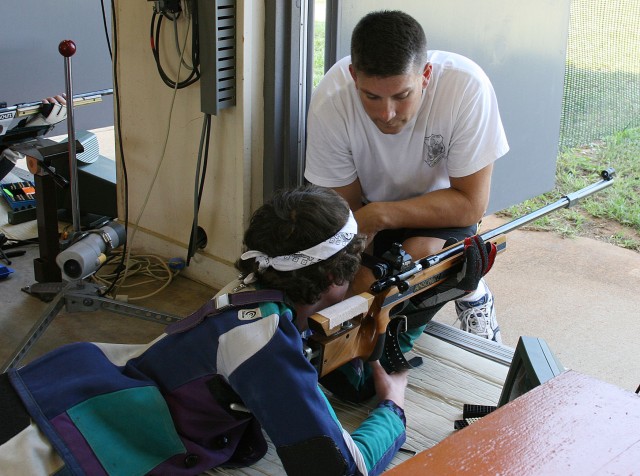
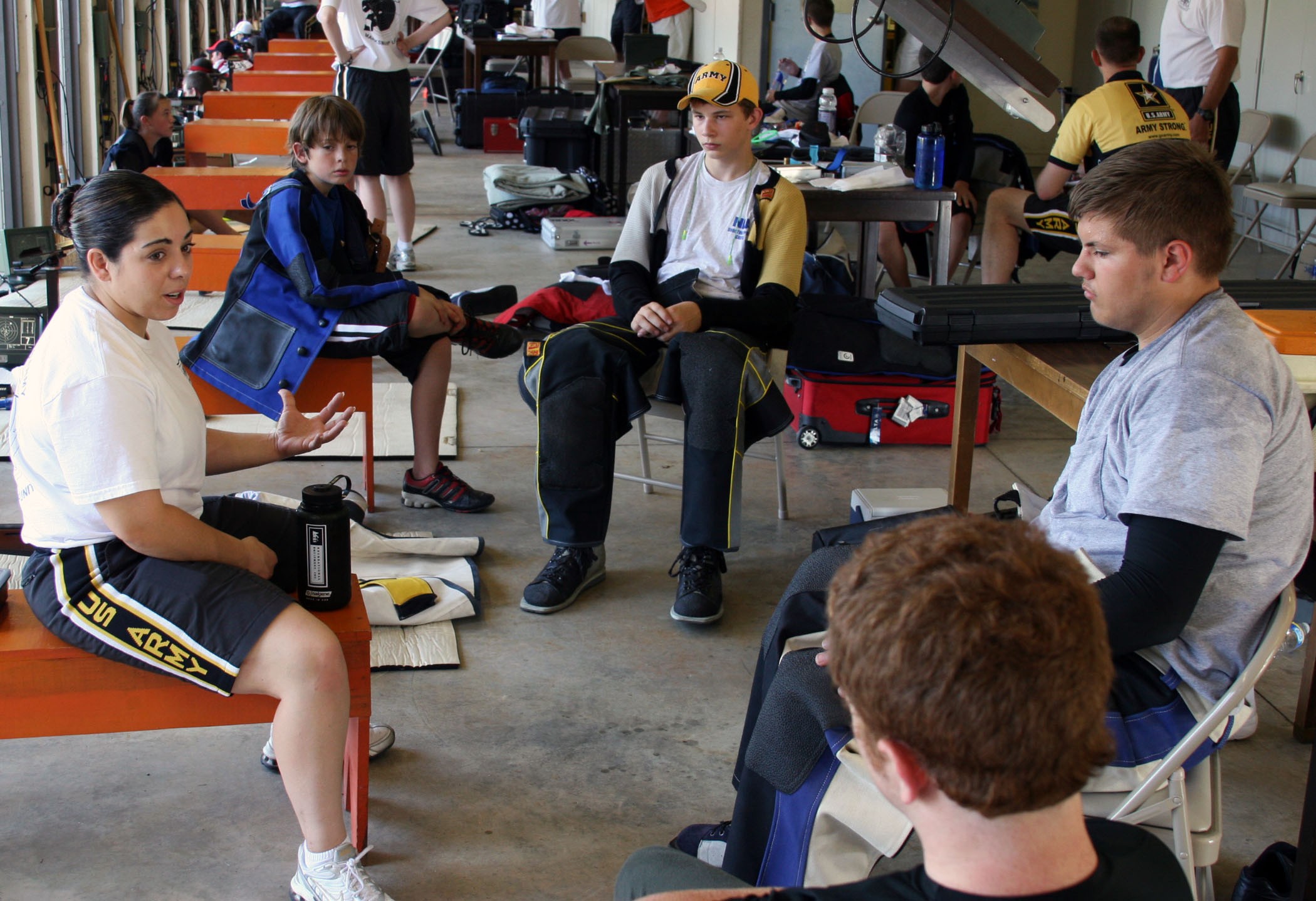
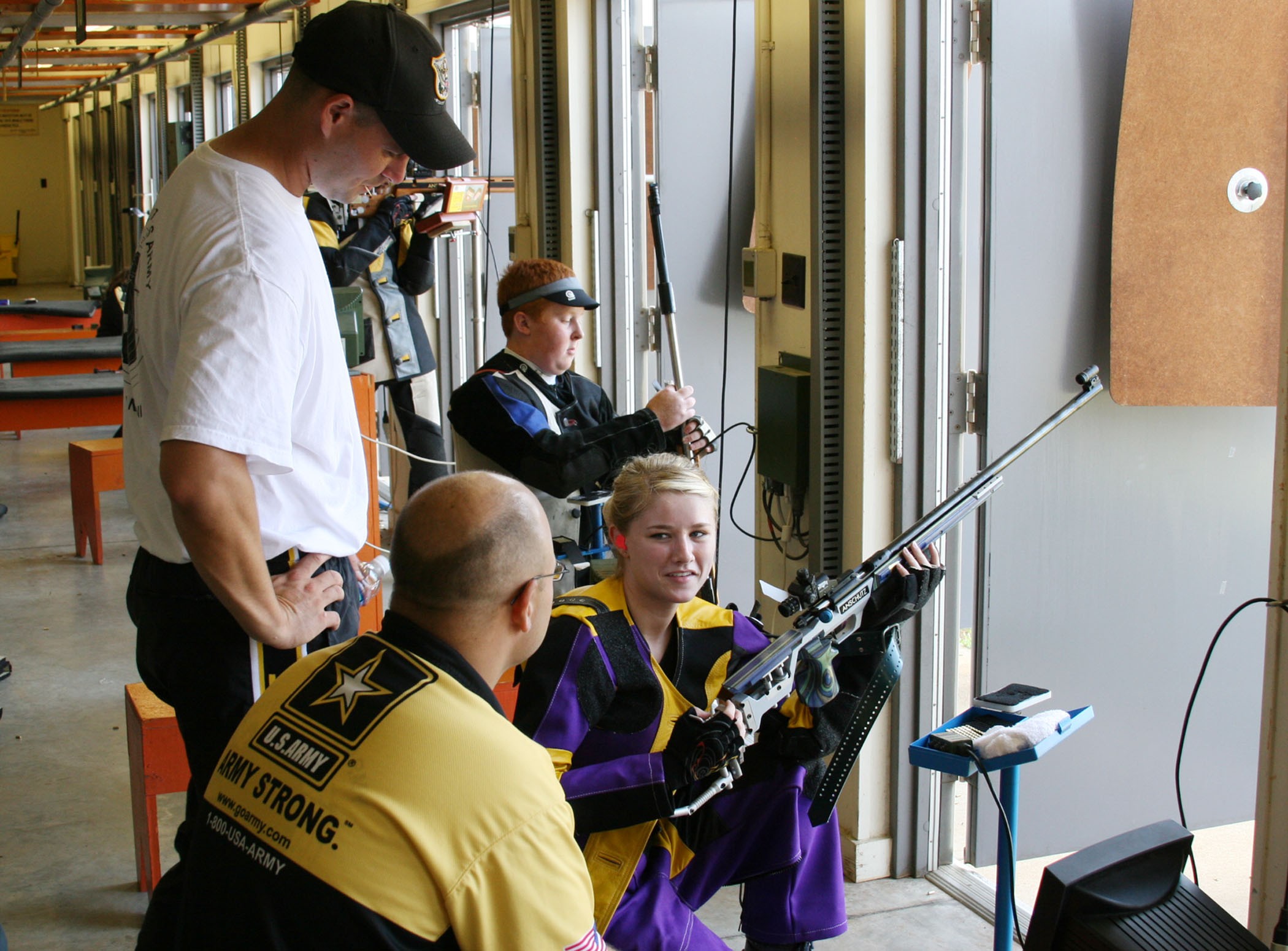
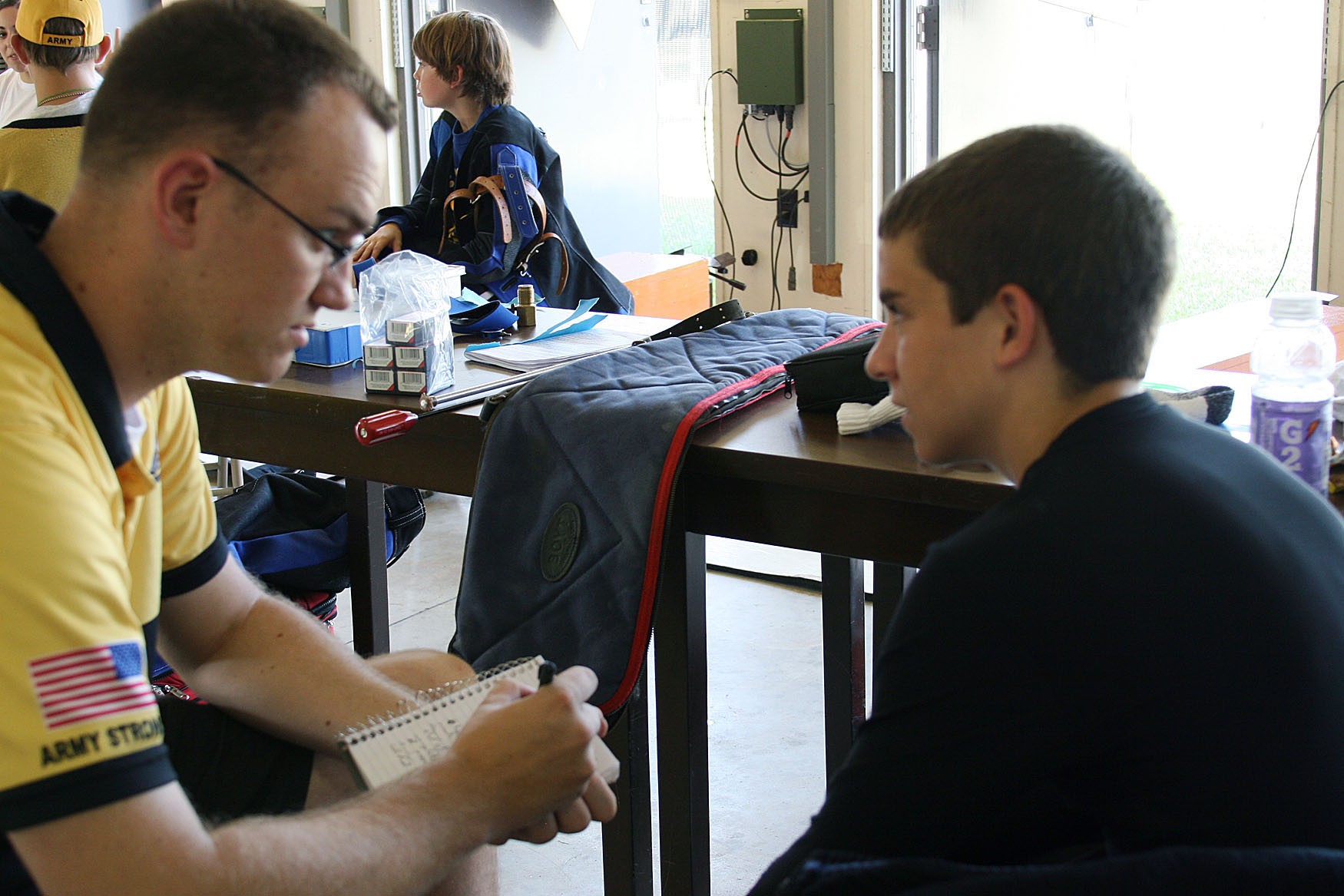
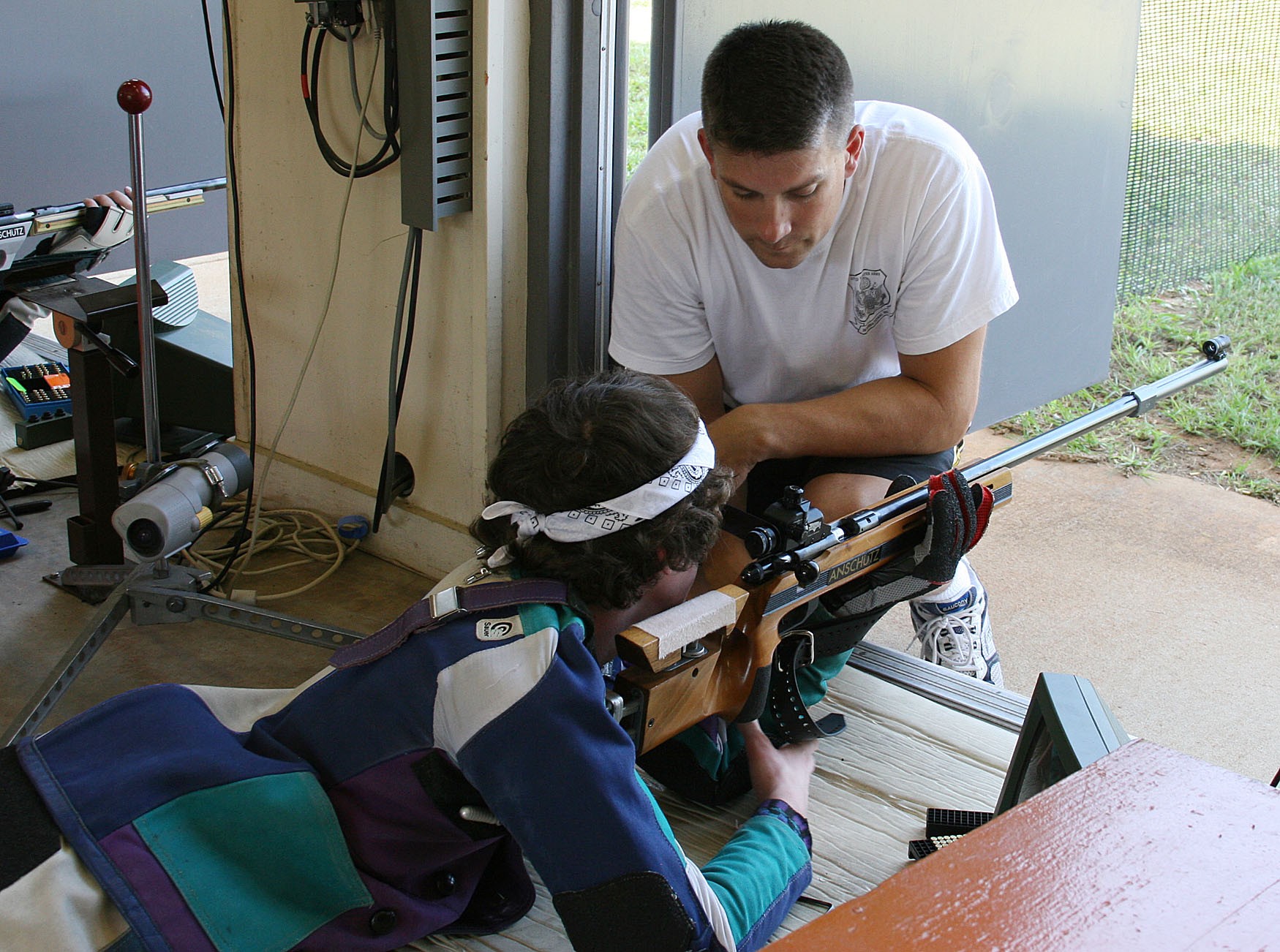
Social Sharing